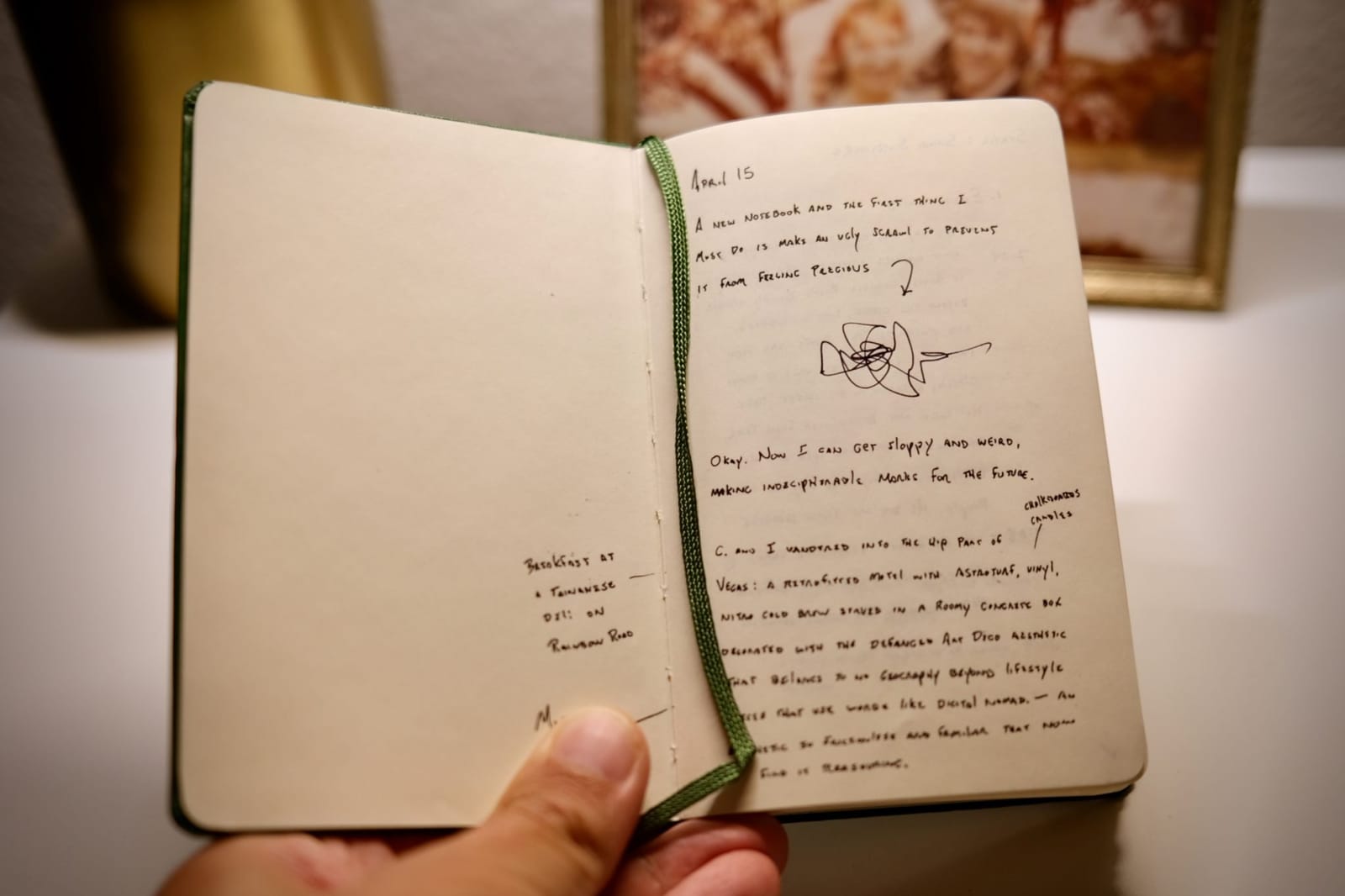Woke up the other day and watched a billionaire’s rocket explode. Then C. and I ate breakfast at a Taiwanese deli on Rainbow Road: a bowl of soy milk, intensely fried bread, and an oyster omelet. We wandered into a hip zone of Vegas where a 1960s motel has been retrofitted into a breeding ground for nitro coldbrew, artisanal photography, chalkboard mantras, and shade-grown candles. Every surface gleamed with a gently neutered Art Deco aesthetic that belongs to no geography or point of view beyond lifestyle pieces that use phrases like “digital nomad”—a style so frictionless and familiar it feels almost narcotic.
Bought a small new notebook to carry around the desert, and it’s a pleasant shade of green. Whenever I buy a new notebook, the first thing I do is make an ugly scrawl to prevent myself from ever mistaking it for something precious.
In Novelist as a Vocation, Haruki Murakami contemplates why his novels sold particularly well during times of sudden upheaval: Russia and Eastern Europe as communism collapsed, Germany after the fall of the Berlin Wall. He writes:
In any age, when something major occurs and there’s a shift in social reality, there’s a related yearning for a shift in the reality of stories as well. Stories can exist as metaphors for reality, and people need to internalize new stories (and new systems of metaphor) in order to cope with an unfolding new reality. By successfully connecting these two systems, the system of actual society and the metaphoric systems . . . people are able to accept an uncertain reality and maintain their sanity. I get the sense that the reality in the stories I provide in my fiction just happens to function globally as a kind of cogwheel that makes that adjustment possible.
This is a sound case for fiction when things get weird, particularly stories that shrug off the familiar and engage with the surreal. “Beauty will be convulsive or will not be at all,” said André Breton a century ago. “Convulsive beauty will be veiled-erotic, fixed-explosive, magic-circumstantial or not at all.” Could this sensibility also insert itself into our cafes, motels, parking garages, and department stores?





